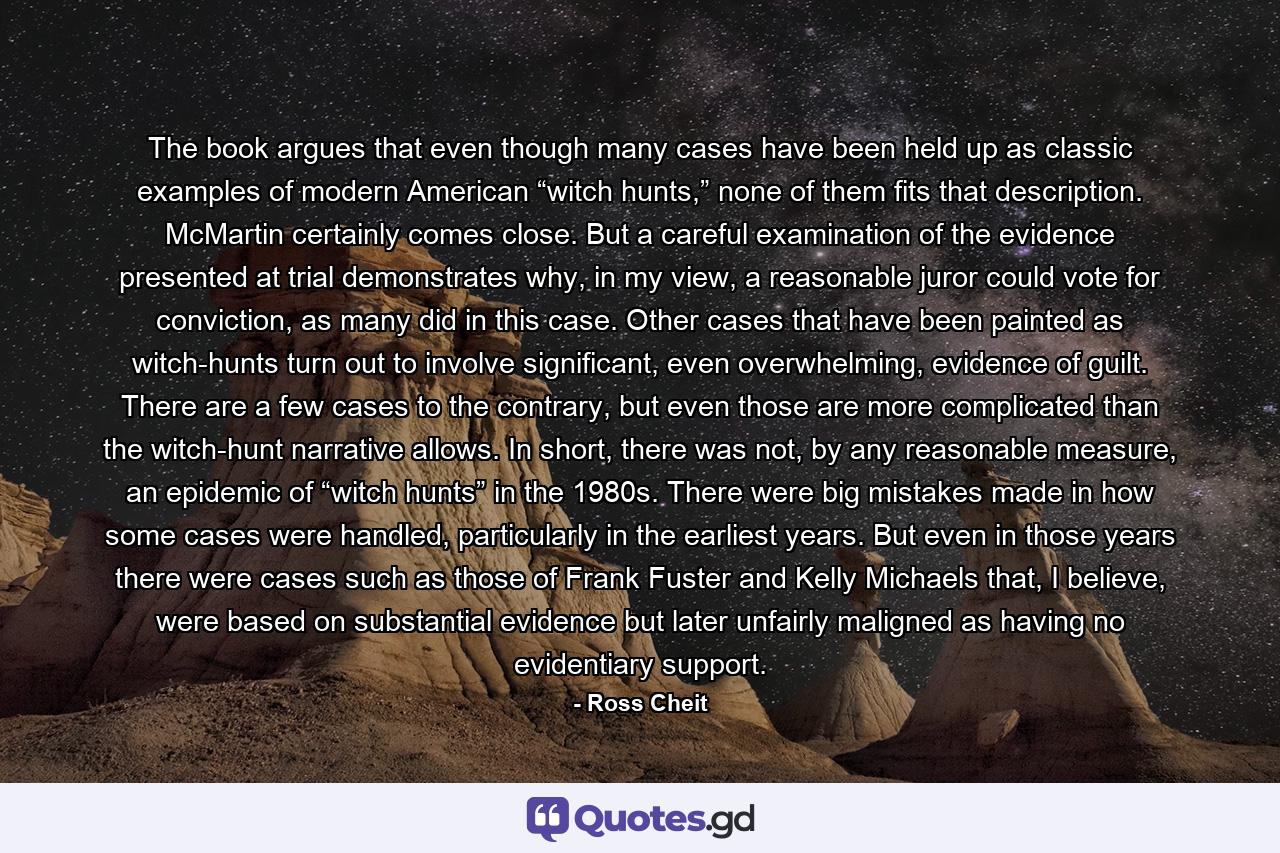The book argues that even though many cases have been held up as classic examples of modern American “witch hunts,” none of them fits that description. McMartin certainly comes close. But a careful examination of the evidence presented at trial demonstrates why, in my view, a reasonable juror could vote for conviction, as many did in this case. Other cases that have been painted as witch-hunts turn out to involve significant, even overwhelming, evidence of guilt. There are a few cases to the contrary, but even those are more complicated than the witch-hunt narrative allows. In short, there was not, by any reasonable measure, an epidemic of “witch hunts” in the 1980s. There were big mistakes made in how some cases were handled, particularly in the earliest years. But even in those years there were cases such as those of Frank Fuster and Kelly Michaels that, I believe, were based on substantial evidence but later unfairly maligned as having no evidentiary support.
About The Quote
- Abuse
- Child Abuse
- Child Molesters
- Child Rape
- Child Sexual Abuse
- Court
- Crime
- Day Care
- Daycare
- Epidemic
- Evidence
- False Allegation
- Frank Fuster
- Guilt
- Guilty
- Institutional Abuse
- Judge
- Juror
- Jury
- Kelly Michaels
- Maniuplation
- Mcmartin
- Media
- Narrative
- Not Guilty
- Overwhelming Evidence
- Reality
- Ritual Abuse
- Satanic Ritual Abuse
- Sexual Abuse
- Society Denial
- Sra
- Trial
- Witch Hunt
- Witchhunt
- Witness
